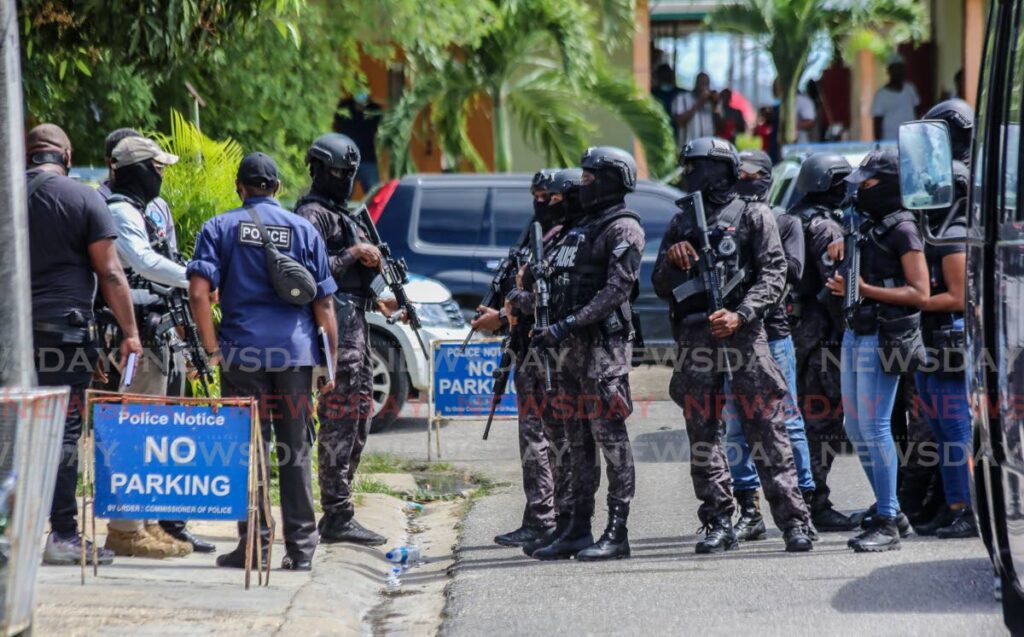US Embassy: SORT could have cost Trinidad and Tobago millions in aid

Trinidad and Tobago could have lost out on millions of dollars and training from the US had the police not restructured the Special Operations Response Team (SORT) amidst concerns that the unit was responsible for the deaths of two men.
In an emailed response to Newsday on Tuesday, the Embassy said the police service is a primary beneficiary for security assistance having already benefited from over US$10 million donated between 2017 and 2021 to the country.
On Sunday, acting Commissioner of Police Mc Donald Jacob said international support for the police was threatened as a result of SORT’s alleged involvement in the deaths of two murder suspects. Jacob did not say who the international bodies were or what support was being threatened.
He said then that while there were plans already in motion to re-organise some of the 20-plus units within the police service, it was only after the executive received two reports on the deaths of detainees Andrew "Solo" Morris and Joel Belcon, a firm executive decision was made to re-organise SORT.
The two reports came from the Police Complaints Authority and intelligence “from our international partners” Jacob said.
The men were suspects in the kidnapping and murder of 22-year-old Andrea Bharatt. The court clerk disappeared on January 29, 2021 and her body was found in the Heights of Aripo on February 4, 2021.
Belcon and Morris died while in police custody after they were arrested by SORT officers on January 31, 2021.
Morris died at hospital the following day, and Belcon eight days later. Police claimed both men needed to be “subdued” while they were being detained. Morris supposedly was “acting violently" when he was arrested, while police said Belcon tried to escape.
Asked if support for the police was withdrawn because of the deaths, the embassy, without confirming or denying, said: “Under United States Leahy law, the United States cannot provide assistance to security force units that are credibly implicated in gross violations of human rights.”
On Tuesday, Jacob reiterated that the first time any report was sent to the police about concerns regarding SORT, was after the deaths of the suspects.
The embassy did not say that it expressed concerns. It said, “Leahy law allows for a remediation process where restrictions can be removed from ineligible units. This process requires a completed judicial process in which cases have been thoroughly investigated and prosecuted.
"The United States is concerned about persistent allegations of corruption and abuse involving members of the security services, and will continue to collaborate with the (police service) to strengthen transparency and oversight mechanisms.”
Jacob said on Sunday that SORT will be replaced by a new entity called the National Operational Task Force (NOTF). The police is finalising the formation of the unit with Jacob assuring that the public will be updated by the end of the month.
Apart from the financial support, the embassy said it also provided training and capacity-building programs to develop and enhance law enforcement professionals in the investigation and prosecution of crimes involving narcotics, firearms, gangs, homicides, terrorism, and financial transactions.


Comments
"US Embassy: SORT could have cost Trinidad and Tobago millions in aid"